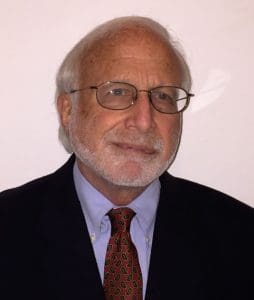Neurosurgeon, Mediator, and Globalist. Member Spotlight: Donald L. Mellman, MD
Patient care, domestic and international healthcare policy, human rights, and conflict management are a few of the areas that have defined Donald Mellman’s ever-evolving career. As a neurosurgeon who worked at the helm of a busy private practice for 26 years, Don now cares for the indigent and offers expert witness services for medical-legal issues across the country. He is also a qualified arbitrator and a Florida Supreme Court certified mediator who consults internationally with NGO leaders and other practitioners on leadership, neurosurgical matters, and healthcare challenges. Most of his work in the last decade has been focused on the Middle East where he cares for patients in conflict zones and occasionally mediates healthcare disputes.
Career Iterations
 Don began working as a neurosurgeon in 1974. “Having the ability to save lives has been the most rewarding part of my career,” However, by 2000, he had also developed an interest in engaging with the broader dynamics of healthcare policy and patient safety. He explained, “I decided that I was ready for a new challenge.” After earning his MBA from The University of South Florida and an MPH from the Harvard School of Public Health, Don completed advanced training in international conflict management in Pisa, Italy, which gave him the skills and confidence to launch a new iteration of his career.
Don began working as a neurosurgeon in 1974. “Having the ability to save lives has been the most rewarding part of my career,” However, by 2000, he had also developed an interest in engaging with the broader dynamics of healthcare policy and patient safety. He explained, “I decided that I was ready for a new challenge.” After earning his MBA from The University of South Florida and an MPH from the Harvard School of Public Health, Don completed advanced training in international conflict management in Pisa, Italy, which gave him the skills and confidence to launch a new iteration of his career.
Don transitioned into the role of Chief Medical Officer for a busy teaching hospital in Colorado and, later, for another in California. These positions provided him with a practical awareness of the crucial role that a mediator may serve within hospital leadership. To advocate for patient care and address the systemic problems he observed, Don said, “I had to mediate and negotiate at all levels.”
Closely aligned with this work, Don became involved with Physicians for Social Responsibility (PSR) in 2008 as a co-founder of PSR Tampa Bay and as a member of the national board. PSR is the largest physician-led organization in the United States with the mission “… to create a healthy, just, and peaceful world for both present and future generations.” Don explained that issues, such as the threat of nuclear proliferation and climate change are among the important topics this organization confronts through program development and advocacy. As a representative for International Physicians for the Prevention of Nuclear War, Don was a member of the United Nations’s civil society for an illegal arms trade-related treaty. Notably, he explained that negotiation and mediation tactics were crucial to the UN’s approach to this issue and, eventually, led to the treaty being ratified.
An Argument for ‘Jaw-Jaw’
Winston Churchill elegantly declared, “To jaw-jaw is always better than to war-war.”
Churchill’s notion is one that Don described as poignantly representative of his perspective on communication versus hostility, after being given an opportunity to travel to conflict regions in Israel and Gaza in 2009. Don has returned to this region almost every year for the last ten years to support NGOs and physicians dedicated to alleviating the human rights and public health crisis within the Gaza Strip. “I have tried to read and study as much as I can about the history of the Middle East and how its conflicts have evolved up to present-day.” Don has also lectured about his engagements and published several articles, including, “The Palestinian Non-Governmental Organization Network: Mediating in the Midst of Conflict.” Don is interested in how the concept of ‘effective behavior’ within human relationships and basic interactions may be applied to the state-level analysis, particularly in the context of addressing major conflict dynamics.
Future Involvement with MBBI
Don spoke with excitement about his future involvement with MBBI. After being introduced to the organization by former MBBI President and a long-time friend, Lynn Cole, Don has attended several MBBI webinars and is inspired by the diverse cohort of conflict transformation professionals. He hopes to develop a greater presence in mentoring physician and executive leadership on mediation best-practices. However, he is always open to exploring new avenues and taking on challenges in healthcare and issues of social and economic justice. He stated in closing, “I am a globalist who cares about people and their interaction. Combat is never progress; understanding how to get people to work together is what mediation is about.”
Article by Juliana Heffern, MBBI Writer
